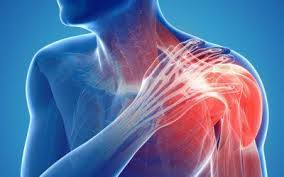Neuropathic pain is a chronic and debilitating condition that impacts millions of people worldwide. It arises from damage or dysfunction in the nervous system and often presents as burning, shooting, or stabbing pain. This article delves into whether neuropathic pain can be cured or merely managed, exploring various treatments, advancements, and expert insights.
What Is Neuropathic Pain?
Neuropathic pain stems from abnormalities in the nervous system, which includes the brain, spinal cord, and peripheral nerves. Unlike nociceptive pain caused by tissue damage, neuropathic pain originates from faulty nerve signaling.
Common Causes of Neuropathic Pain
- Injuries: Trauma to nerves from accidents or surgeries.
- Chronic Conditions: Diabetes, multiple sclerosis, and cancer.
- Infections: Postherpetic neuralgia from shingles.
- Toxins: Exposure to harmful chemicals or medications.
Symptoms to Watch For
- Tingling or numbness.
- Spontaneous pain without a trigger.
- Sensitivity to touch or temperature.
- Shooting or burning sensations.
Can Neuropathic Pain Be Cured?
The cure for Neuropathic pain largely depends on its underlying cause. In some cases, addressing the root issue can significantly reduce or eliminate the pain. However, for many, neuropathic pain remains a chronic condition requiring ongoing management.
Curable Scenarios
- Treating Underlying Conditions: For instance, controlling blood sugar in diabetic neuropathy may halt or reverse nerve damage.
- Surgical Intervention: In cases of nerve compression, such as carpal tunnel syndrome, surgery may resolve the issue.
- Infections: Early treatment of infections like shingles can prevent long-term nerve damage.
Challenges to a Cure
Neuropathic pain often persists even after the initial injury heals. Nerves may develop abnormal signaling pathways, making complete recovery difficult.
Strategies for Managing Neuropathic Pain
While a definitive cure may not always be possible, various treatments aim to reduce pain and improve quality of life.
1. Medications for Symptom Relief
- Anticonvulsants: Drugs like gabapentin and pregabalin help stabilize nerve activity.
- Antidepressants: Tricyclic antidepressants and serotonin-norepinephrine reuptake inhibitors (SNRIs) are effective in reducing pain perception.
- Topical Agents: Capsaicin cream and lidocaine patches provide localized relief.
- Opioids: Reserved for severe cases due to the risk of dependency.
2. Physical Therapy
Physical therapy plays a crucial role in improving mobility, reducing stiffness, and alleviating pain. Techniques like stretching, strength training, and hydrotherapy are often recommended.
3. Nerve Blocks and Injections
For severe cases, healthcare providers may use nerve blocks or corticosteroid injections to target specific areas and reduce inflammation.
4. Lifestyle Modifications
- Healthy Diet: A diet rich in antioxidants and anti-inflammatory foods supports nerve health.
- Exercise: Regular physical activity enhances blood flow and reduces pain sensitivity.
- Stress Management: Mindfulness and relaxation techniques mitigate pain exacerbated by stress.
5. Alternative Therapies
- Acupuncture: Stimulates nerve pathways to alleviate pain.
- Chiropractic Care: Aligns the spine and reduces nerve pressure.
- Herbal Remedies: Some find relief with turmeric, omega-3 fatty acids, or magnesium supplements.
Advancements in Neuropathic Pain Treatment
The medical field continuously explores innovative treatments for neuropathic pain.
1. Neuromodulation
Devices like spinal cord stimulators and transcutaneous electrical nerve stimulation (TENS) machines modify nerve activity to reduce pain signals.
2. Regenerative Medicine
Emerging therapies, including stem cell treatments and platelet-rich plasma (PRP) injections, focus on repairing damaged nerves.
3. Gene Therapy
Researchers are investigating gene-editing technologies to target pain-causing mechanisms at the molecular level.
4. Virtual Reality Therapy
VR therapy distracts patients from chronic pain by immersing them in interactive environments that reduce pain perception.
When to Seek Professional Help
Prompt medical attention is crucial for neuropathic pain to prevent long-term complications. Consult a specialist if you experience:
- Persistent or worsening pain.
- Difficulty performing daily activities.
- Side effects from current treatments.
Living with Neuropathic Pain
Managing neuropathic pain is a lifelong journey for many, but with the right combination of treatments and strategies, individuals can achieve significant relief and lead fulfilling lives. Support groups, counseling, and education empower patients to adapt and thrive despite their condition.



